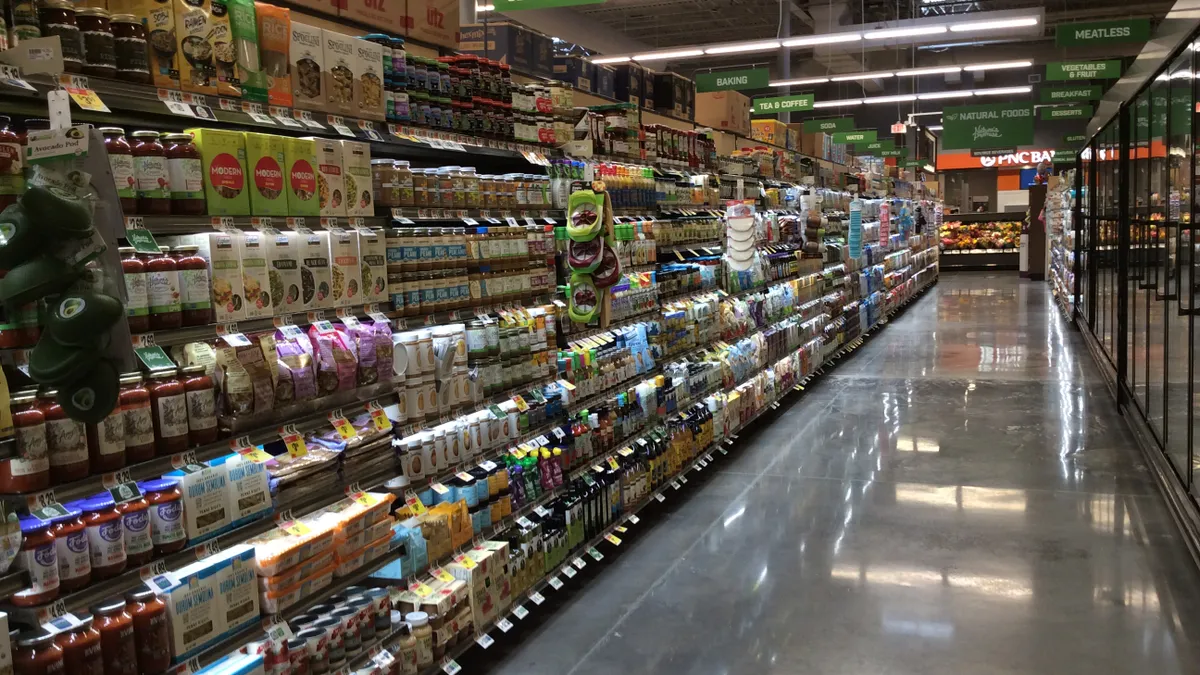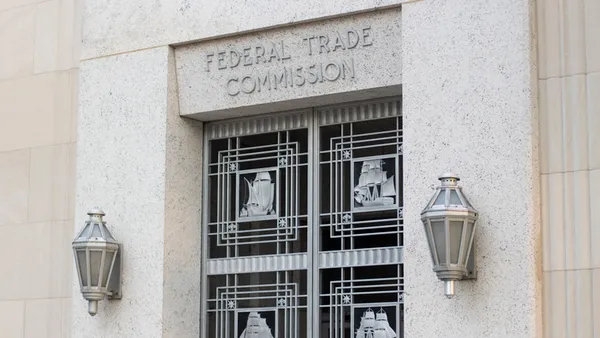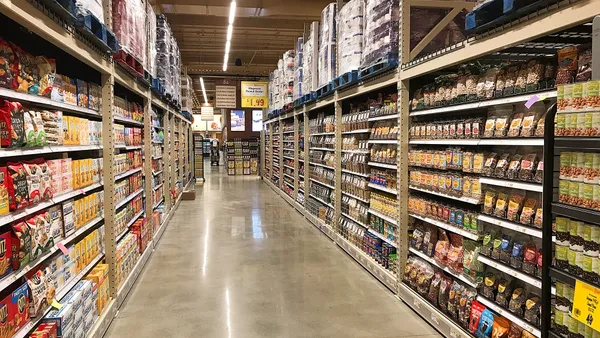Dive Brief:
- A growing share of U.S. consumers are dissatisfied with the way grocery stores are handling the COVID-19 crisis at a time when people's general level of worry about the pandemic has hit its lowest point since the public health emergency began, according to the latest wave of Dunnhumby's Consumer Pulse Survey, released Monday.
- Only 36% of respondents in the United States said they feel stores are doing a "good job" responding to the pandemic, down from 50% in February and even higher than that in the early weeks of the crisis.
- People are shopping at grocery stores more often even as they report negative feelings about how retailers are operating in light of the challenges posed by the pandemic.
Dive Insight:
Shoppers appear to be torn between their sense that grocers have fumbled their response to COVID-19 and a desire to stabilize their routines — at least when it comes to stocking up on food, the data from Dunnhumby suggests.
The global consumer research company said its "Worry Index," which gauges concern about the impact of the virus over time, fell to 17% in the United States when the survey was conducted between late August and early September, its lowest level since the start of the pandemic, when it was at 31%. The index has dropped steadily since hitting its apex of 32% in November.
At the same time, just 24% of U.S. participants in the research indicated they believe conditions in grocery stores are regaining normalcy, placing the country among the most pessimistic of the 24 countries Dunnhumby studied when it comes to consumer perception of food retailers.
Dunnhumby said consumers are looking for value right now and don't feel that very many grocers are currently offering it. Asked which food retailer offers the best value for money, 29% pointed to Walmart, which was followed by Aldi (12%), Kroger (7%) and Target (6%). Twenty-one percent said they did not feel any chain deserved that distinction.
“After living with the pandemic for 20 months, consumers are now twice as concerned about their personal finances as they are about COVID itself. With inflation persisting, and government stimulus’ phased out, the majority of shoppers are now looking for greater value,” Grant Steadman, president for North America at Dunnhumby, said in a statement.
Nevertheless, U.S. consumers in the survey indicated they made an average of six trips per week to the grocery store, up from 3.8 trips in March 2020, suggesting that people are setting aside their misgivings about the grocery industry's response to the pandemic as they seek to move on with their lives. While the latest figure represents a decline from February, when the survey was last conducted, it is above where it was at any earlier point in the crisis.
Shopping at grocery stores picked up in concert with people's patronage of restaurants. Eighty-two percent of the participants in Dunnhumby's latest round of research said they had been to a restaurant to buy food either to consume elsewhere or eat at the establishment during the past week, a level that was at its strongest level since March 2020.
The research suggests that consumers have stepped up their use of grocery e-commerce channels as they visit grocery stores restaurants more often. Forty-seven percent of U.S. respondents reported shopping both online and in-store, up from 35% when the pandemic got underway. About one-third of weekly shopping trips were online during Dunnhumby's most recent round of research, compared with 23% in March 2020.
To compile the results, Dunnhumby collected responses between Aug. 27 and Sept. 3 from 58,089 people in 24 countries, including the United States, with about 400 respondents coming from each country.











